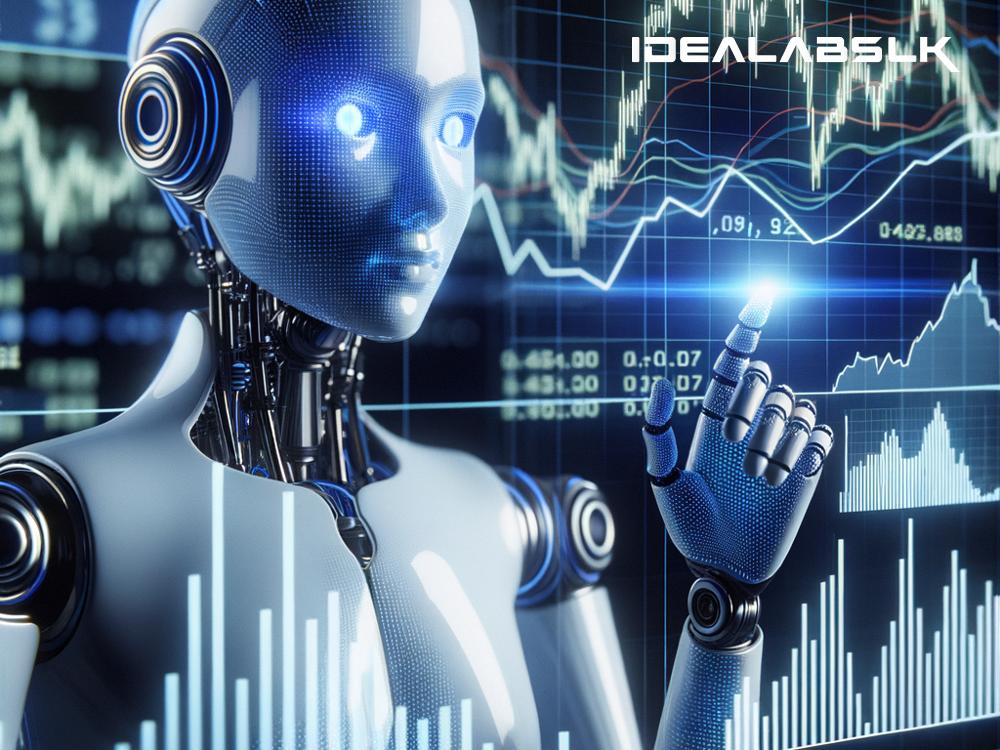AI in Trading: Transforming the Financial Markets with Machine Learning
In the rapidly evolving world of finance, artificial intelligence (AI), especially machine learning algorithms, is revolutionizing how trading is conducted. Gone are the days when trading was solely dependent on human intuition and extensive research. Today, AI is changing the game, offering unprecedented efficiency, speed, and accuracy in analyzing market data and executing trades. This transformation is not just reshaping the trading strategies but is also making the financial markets more accessible and understandable to the average person. Let's dive into how machine learning algorithms are changing the landscape of trading.
The Power of AI in Predictive Analysis
At the heart of AI's impact on trading is its capability for predictive analysis. Machine learning algorithms, a subset of AI, can sift through vast amounts of historical and real-time market data to identify patterns, trends, and potential future movements of assets. Unlike traditional analysis methods, which are often time-consuming and prone to human error, AI can process this information almost instantaneously and with remarkable accuracy. This allows traders and investors to make informed decisions much quicker, enhancing their ability to capitalize on market opportunities.
Automated Trading Systems
One of the most significant contributions of AI to trading is the development of automated trading systems. These systems use machine learning algorithms to execute trades automatically based on predefined criteria or the algorithms' predictions about market movements. The beauty of automated trading is that it can operate 24/7, making trades in milliseconds, much faster than any human could. This speed and efficiency can be particularly advantageous in volatile markets, where opportunities can come and go in the blink of an eye.
Moreover, automated trading systems can help mitigate the impact of emotions on trading decisions. Fear and greed are often traders' worst enemies, leading to costly mistakes. By relying on AI, these emotional biases are removed from the equation, potentially leading to more rational and profitable trading strategies.
Risk Management
Another area where AI is making a significant mark is in risk management. Trading inherently involves risk, but machine learning algorithms can help identify, assess, and manage these risks more effectively. By analyzing historical data and market conditions, AI can predict potential downturns or crashes and adjust trading strategies accordingly. This not only helps in protecting investments but also in maximizing returns by avoiding significant losses.
Personalized Investment Strategies
Machine learning algorithms are also paving the way for more personalized investment strategies. By analyzing an individual's financial goals, risk tolerance, and investment preferences, AI can tailor trading strategies that best suit their needs. This level of customization was once exclusive to high-net-worth individuals with access to personal financial advisors. However, AI is democratizing personalized trading, making it accessible to the average investor.
Challenges and Considerations
While the benefits of AI in trading are evident, there are challenges and considerations that need addressing. The increasing reliance on automated systems raises concerns about market stability and the potential for flash crashes, where markets fall rapidly within a very short time due to automated trades. Moreover, there's an ongoing debate about the ethical implications of AI in trading, including concerns about privacy, data security, and the widening gap between those who have access to advanced AI technologies and those who do not.
The Future of Trading
The integration of AI in trading is still in its early stages, but its impact is undeniable. As technology advances and machine learning algorithms become more sophisticated, AI's role in trading will only grow. The future of trading may see even more personalized and efficient trading systems, predictive analytics with near-perfect accuracy, and perhaps even new forms of trading that we haven't yet imagined.
In Simple Terms
AI, through machine learning algorithms, is reshaping the trading landscape, making it faster, more efficient, and accessible. From predictive analytics and automated trading systems to personalized strategies and improved risk management, the benefits of AI in trading are vast. However, as we embrace this technological revolution, we must also navigate its challenges, ensuring that the benefits of AI are accessible to all and that we maintain a stable and ethical trading environment. The future of trading is indeed bright, with AI leading the way towards a more informed and efficient market.
Whether you're a seasoned trader or just starting to explore the world of finance, the rise of AI in trading is something to watch closely. It's not just about the technology itself but how it's making the financial markets more accessible, understandable, and, ultimately, more profitable for everyone involved.

